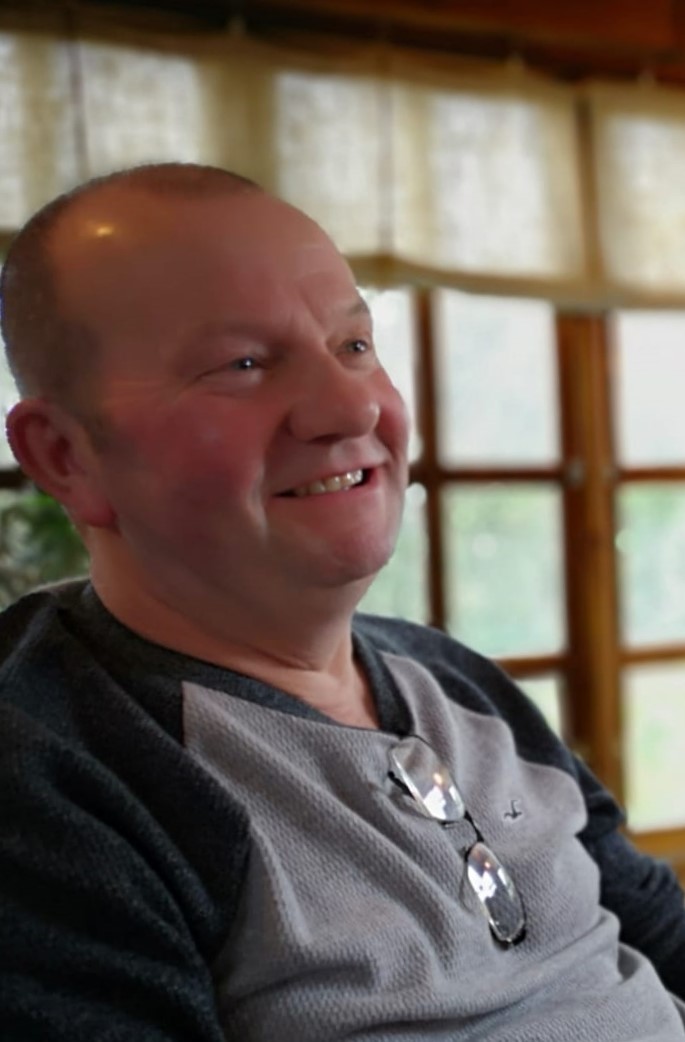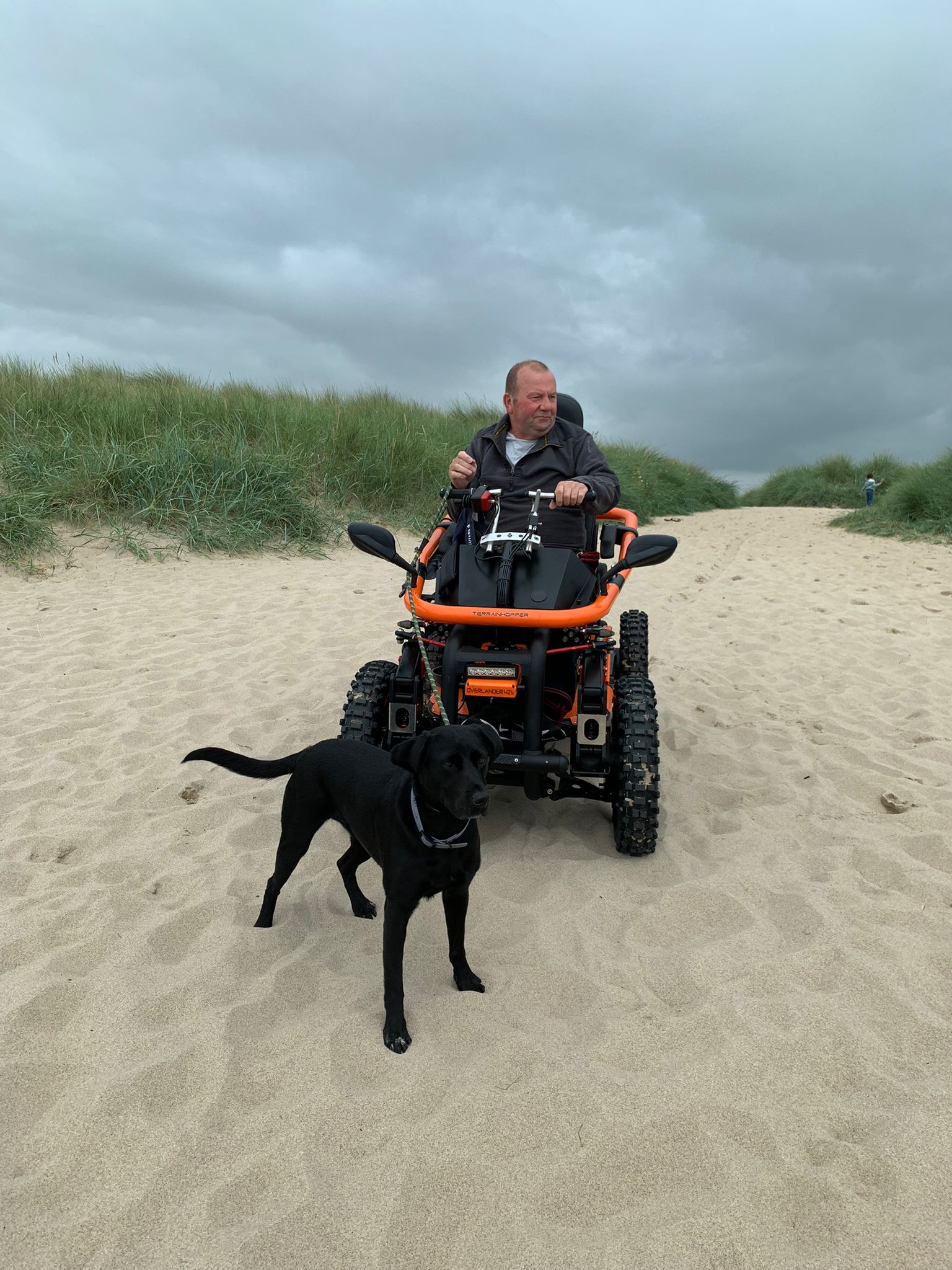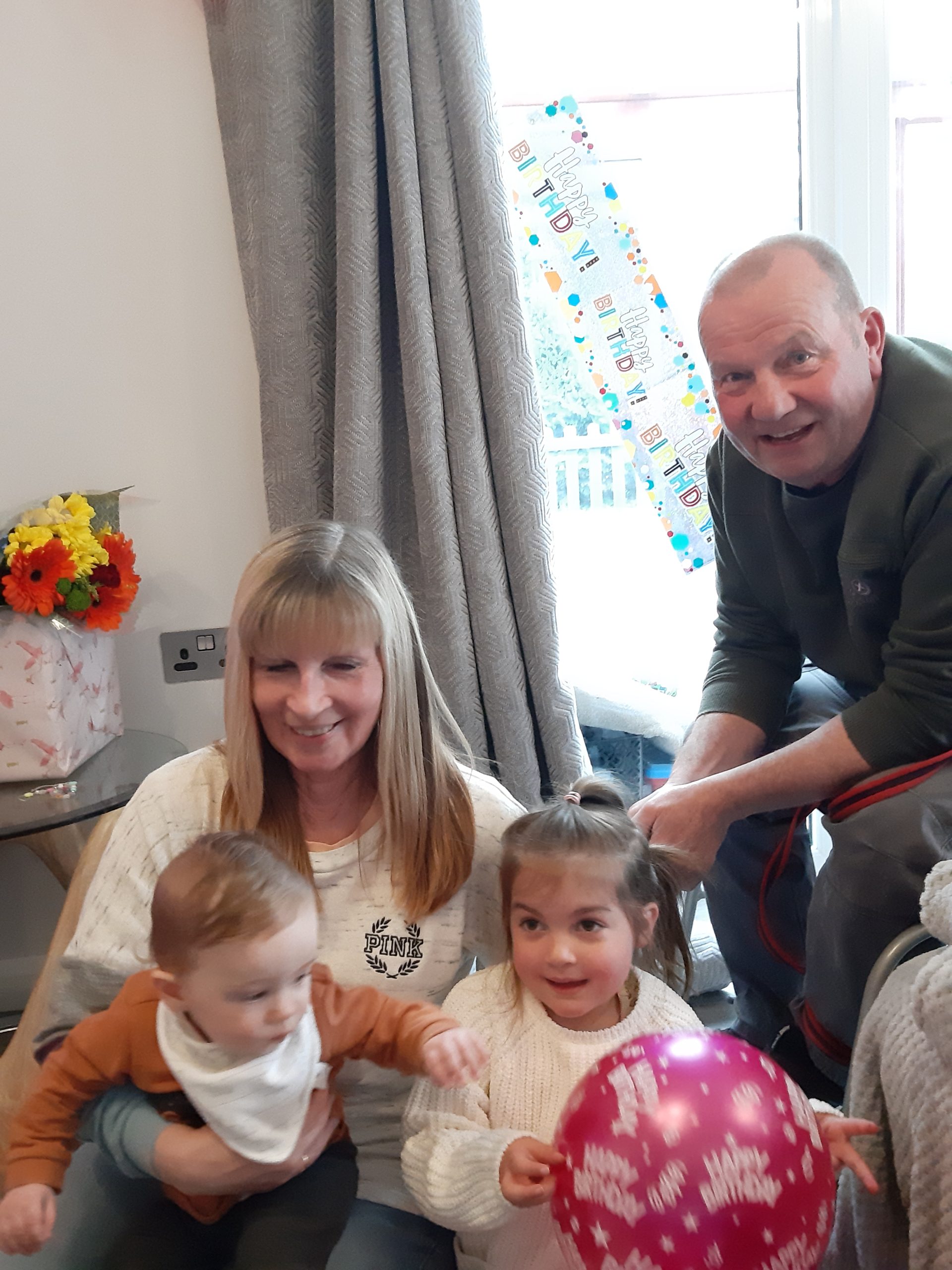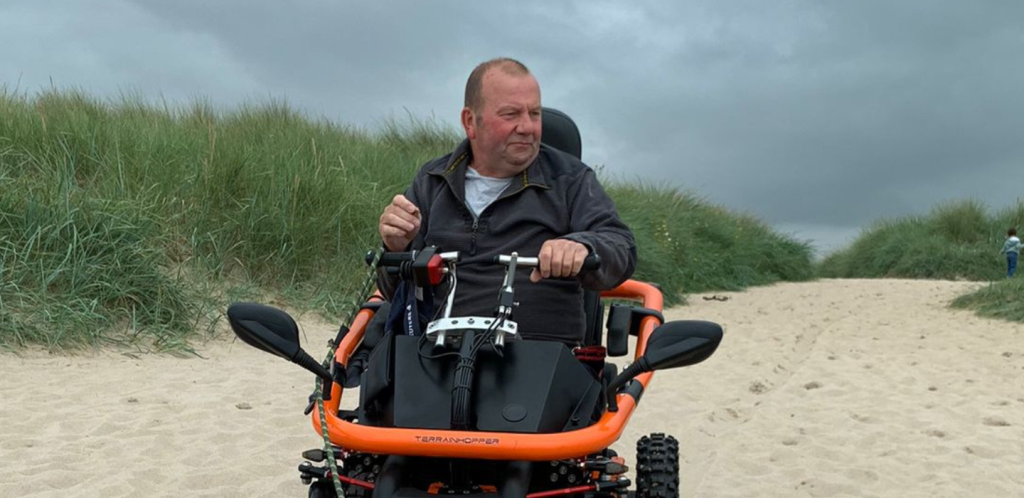Living with a long-term health condition can impact you not just physically, but also mentally – particularly if the way you’re used to living your life changes too.
For Graham Wass, a retired on-call firefighter with Cambridgeshire Fire and Rescue Service, that change has been huge, as he’s living with Secondary Progressive MS.
Graham, 63, now needs support from carers and isn’t able to walk unaided, which has meant he’s unable to do many of the tasks and hobbies he once took for granted.
However, he says finding new ways to cope – and being offered a break to focus on himself and his overall wellbeing at one of our centres, as well as some remote counselling – have all been valuable achievements for him and have helped him come to terms with a new normal.

Donate now to support more people like Graham
“When I first got my diagnosis in 2005, I didn’t really understand it or how it would impact my life. I’ve done a lot of research into it since,” says Graham, who was an on-call firefighter for 16 years alongside his job as a motor vehicle engineer.
“For the first 13 or 14 years, you wouldn’t have noticed any difference. I carried on the same as before, working and doing all my jobs at home and everything. I noticed a little bit, as did people close to me, but anyone else wouldn’t have noticed at all.
“The last three and a half years though, I’ve just fallen off the edge of a cliff. Completely and dramatically downhill.
“It’s impacted me physically to the point I don’t walk anymore and need carers to get me up and about. I get very, very tired and the ends of my fingers are numb so I struggle to write or use a knife and fork.

“It’s also completely unpredictable, which is hard. One day you might feel reasonable and the next you’re absolutely terrible.”
Graham also found the decline in his mobility had an impact on his mental health too.
“I used to do everything at 150mph. I did everything myself, very rarely having anyone helping me with anything,” says Graham
“When I got MS, everyone told me to slow down and pace myself… I did, but only to about 90mph. I was very, very independent and motivated and that’s why I did the fire service alongside my job too.
“The MS getting worse had a very dramatic impact on my mental health.
“You’ve got this very difficult situation where you want to do something and achieve something, especially for your mental health, but you can’t do it and then you’re even further back. You’re one step forward and two steps back.”
“It got to the point I needed a break, and so did my partner”
Graham Wass
Graham’s long-term partner helps to care for him, around her own full-time job, and he says the financial strain all of the equipment he now requires has had on them has been huge too.
It was this build up of factors that led Graham to think of reaching out for a helping hand – and he was reminded by some former colleagues about all the fundraisers he’d done for us throughout his career, and the support we offer that he’d heard so much about.
“Two of my previous firefighter colleagues told me to get in touch with you. I kept saying, ‘no, they don’t want people like me’. They kept saying I’m exactly the kind of person you could help,” says Graham.
“They kept saying, ‘over the years you raised thousands of pounds through fundraisers’ – which is true, I loved taking part in those – and eventually I started listening I guess.
“It got to the point I needed a break, and so did my partner… she couldn’t come, because she looks after her mum, but me going away for a week was that break she needed too.
“I rung you and it went from there, it was so easy.”
Graham was offered a stay at Jubilee House, our centre in Cumbria, and he adds of his time there: “I got told off a lot when I tried to do too much! But it was exactly what I needed.
“I had a meeting with Welfare and also with one of the psychological therapists, to organise some remote sessions which have been very helpful.

“Then I tried the hydrotherapy pool as well as the gym and some physiotherapy. It was really an all-round week.
“They’ve now asked me to go again at the start of 2023 which will be good. It’s the first time I’ve been to the Lake District too, which I loved.
“I’ve been spreading the word to my ex-colleagues to get in touch when they need support now too. I have one friend with Long Covid, who I’ve told about your Covid Recovery Programme.”
Graham also says the trip to Cumbria reinforced his love of the outdoors, and he ensures he walks his dog every day now on his mobility scooter – often spending hours outside, which he says has been hugely beneficial for his wellbeing.
If you’re struggling with your health and wellbeing, we may be able to help you. Call our Support Line on 0800 389 8820, make an enquiry online or register for MyFFC now and visit the ‘Access Support’ tab at the top of the MyFFC homepage.
You can also join our ‘Share Your Story’ Group in MyFFC, by clicking on the ‘Groups’ tab, to chat to others who have received our support or enquire about sharing your own story.

